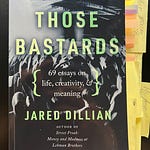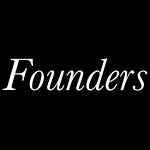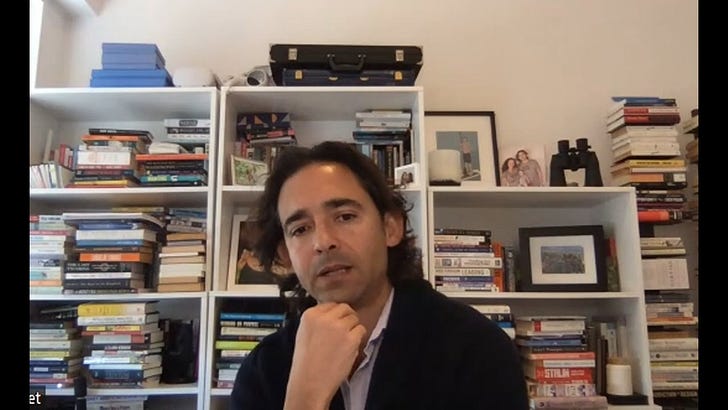Hello everyone.
I’m very excited to share my conversation with Rob Wertheimer of Melius Research and one of the co-authors of Lessons from the Titans (my notes)
I really enjoyed digging into the book’s big themes around the culture and business systems of some of the most successful industrial companies. Rob shared his lessons on finding other compounders, evaluating leaders, digging into incentive structures, touring factories, and the best research note he ever wrote - but never published.
I hope you’ll enjoy this conversation as much as I did!
Rob is a Founding Partner, Director of Research, and the lead research analyst for the global machinery sector with additional coverage responsibilities in industrial tech. Rob was the lead machinery analyst at Barclays, Vertical Research, and Morgan Stanley, and began his career in the Peace Corps in Niger, West Africa.
Listen to this episode on:
I also have a very rough transcript for this one.
Disclaimer: this podcast is for entertainment purposes only and not investment advice. It does not constitute an offer to sell or the solicitation of an offer to buy any securities mentioned or discussed. Seek your own financial, tax, legal, accounting, or other advisor’s advice before making any investment decisions. Do you own work. I am are not your fiduciary or advisor.
Today's post is sponsored by Tegus. Tegus is an on-demand digital research platform on which investors share their expert calls. Their library currently has some 23,000+ calls covering many public and private companies and it's growing every day. It's a beautiful business model (I wish I was an investor!) and I could see it scaling up to cover any company and industry you can imagine. I think of it as being able to tap into a library of conversations between industry insiders. I'd encourage you to check it out - they offer free trials.
Show Notes:
[Minute 1] Question: Background on Melius.
[2] Question: Key themes/takeaways from the book.
“The reasons for failure and the formulas for success haven’t really changed at all. Whether it be 1950, 1980, or 2020, they are pretty much exactly the same.”
“The truth is that their secrets are hardly secrets at all—continuous improvement, rigorous benchmarking, disciplined investment, principled leadership, solid business systems
[3] Question: Assessing culture as an outsider.
“Does it drive your daily actions?”
“Danaher or Ingersoll Rand they'll do weekly meetings where you have a weekly meeting, you have like 20 minutes, you get two minutes to state your problem a minute to ask for feedback, you move on. That's an example of a daily or a weekly feedback loop that comes around. I think the best cultures have that sort of process ingrained in them.”
[5] Question: Importance of leadership.
“You make either a good allocation to capital or poor ones. And obviously that drives a ton of shareholder value differentiation, but there's also need for sustained commitment to a system. You can see lots of management teams that have sort of laid out goals, but if you don't get everybody motivated and incentivized the right way, then they can fade away.”
[6] Question: what are you paying attention to to see whether culture is changing or whether the arrogance is creeping in?
“The value gets created everyday throughout. And so, you know, if you have a culture that's spending too much time on big ideas and not enough time on generating the cash that, that allows you the flexibility to do things, if you have a culture that's veered into being a little bit PowerPoint-focused, if it's projecting yourself internally focused as opposed to executing on the daily task that can be a real red flag.”
[9] Question: Have you seen aspects of great culture that are universal or is it very specific to the company? How much room is there for bringing in ideas from the outside?
“Having clear goals, having reinforcement loops and having the ability to course correct is universal. One of the points we try to make in the book, a lot of these companies have been innovative and a lot of companies have created categories. How do you analyze caterpillar? Well, I don't look at them as the best bulldozer, and they do, but, but they might not have the best in everything. The competitive advantage doesn't always last on innovation, but it does last on getting everything, fixed, getting everything right.”
[11] Question: “Undisciplined operations don’t work” - elaborate on this.
“What do you look for when you go in a factory? Well, it's not actually all that hard. You walk into the factory, you see if the sight lines are clear, if there's a bunch of inventory stacked up and piled up there, that's something wrong.
That's waste. That's confusion. That's a disruption. You look to see that there an employee sort of idea board, and that there's lots of ideas flowing through because workers are the ones who see problems and they surface them. Right? So that's a mechanism for surfacing problems.”
“I went to a mining facility once, and they're these little disks that were used for smoothing or buffing the metal. And they just did a simple thing, a shadow board. It's called you paint on a, you know, on a cardboard wall. Like here's a picture of the disc. So when you're done with it, you stack it here. They found like 70 of these things, you know, they found like a million dollars of equipment. There's a picture of the broom there to hang the broom up. Right. So very, very simple things.”
“The essence of lean is stop and fix, get things, right. Surface problems. And that's a factory floor issue. But as we kind of talked about earlier, that applies to the whole company as well. If you see a problem, you can fix it. If you don't see it, then it grows.”
[15] Question: How do you weight insights from site visit in your assessment of a company?
“It's critical. And honestly, I missed it. I was a pretty new analyst on Caterpillar. When I saw some of these issues, I think I saw three or four factories in the first year, the first 18 months. And one of these visits I walked down and there's there's bins, just bins of things, labeled rework. I was like, what's rework. Well, it didn't come out right the first time. So we're going to do it again, you know? And, you know what I did, I kept writing about the end markets cause that's what I understood at that time. I kept writing about, oh, I think mining's going to be good or bad. I thought oh, well, this doesn't feel great, but I haven't seen that many factories and probably they'll fix it. And in fact that was a, you know, it was a terrible sign. Caterpillar was struggling with production not with the equipment quality, the equipment still great, but they weren't able to crank up production.
“That was actually a huge problem, a huge cultural problem, business system problem. And managers and leaders fixed it. But as I mentioned earlier, sometimes Lean takes a while. So if you've got a workforce who isn't used to it, it might take me five years to get the new system in.”
[17] Question: If it’s so useful why wouldn’t everyone do Lean?
“One answer to your question is continuous improvement is a compounding process, right? And Danaher is maybe the ultimate example of that, but you fix something that gets better and then you fix something else and it gets better and you keep going.”
“It takes a very serious commitment from senior management and it takes years, you know, maybe it takes five years to get everything kind of, you know, where everybody knows that their first job is to stop and fix. The first job is to reduce, you know, inefficiency. It can be tempting to say, well, let's just buy a few hundred extra hoses and just have them there, you know?”
[19] Question: Implementing Lean - like Danaher’s visual management.
“It's not rocket science, right. But it is hard to do.”
“Very easy stuff, but in our day-to-day it can be hard to stop and focus on process.”
[20] Question: Is there a disconnect between analysts and management?
“You know, my job is a tricky one. You have to be arrogant enough to have an opinion, and humble enough to to know you're probably wrong most of the time, you know, close to half the time.”
[22] Question: Forecasting volatile markets.
“A lot of people in this job like thinking about things. So you get a lot of data points. You'd like to think about it. And some of the cultural stuff is harder to think about.”
“Melius uses two year forward price targets. Partly as a mental trick to try and get yourself to focus. Partly because these things show up more over time, right.”
“If you're trying to forecast a quarter, okay. You can say, well, what was, you know, what was demand of iPhone shipped this quarter or something.
But if you're trying to focus on how Apple created value over the last 10 years, I mean, it's innovation and supply chain, you know? So those two things, you know then they switch and relative performance as your timeframe goes out longer.”
[24] Question: What have you observed in terms of what people do well or poorly with, with incentivizing the organization?
“If you have all your incentives structured around raising margin, that might be a phenomenal thing if you're underperforming, if your margins are low. Let's work on pricing, let's work on factory efficiency and et cetera. Eventually that playbook may come to an end. And if you're a person who's grown up in that system and you step into a leadership role it's hard to say to wall street to say all the analysts, you know what, they, we're just going to stop all that, you know, and we're gonna do something else entirely, right? Because investors invest on a certain expectation of future earnings and anything that changes.”
John Deere: “Under the current CEO, John May, they basically shifted their strategy. I think with the endorsement of the prior CEO as well, but they had tried to be a global manufacturer who was leading in all sizes of tractors and they started to look around and they said, well, the technology is changing so fast that we can actually create more value by focusing on large, we're going to try and serve all our customers. We're going to focus on investing in large farms where we can do autonomous tractors, or we can do, you know, actually they're, they're doing AI pattern recognition.”
“One company I follow United Rentals where incentives were a huge portion of the transformation. So they had different branch managers. Let's say, let's say you're a local McDonald's and you're incentivized on beating out the McDonald's down the road. That's kind of crazy. Right. And so, you know, one of the things that, one of the very simple, the powerful changes made it United rentals under a new CEO was let's shift the compensation to focus on regional or district results rather than on your own.”
“And that's a capital intensive industry. So let's charge people for the capital. You know, if you want to buy 10 more pieces of equipment to rent, [00:27:00] you know, that that's part of your compensation. You have to make a return on that. Bizarrely it had not necessarily been that way before.”
[29] Question: What metrics to track?
“Danaher and Roper they do the same thing, a very simple sort of cash return on cash invested. It's simplicity again, right. You know, if you have hundreds of metrics, it's hard to track them. It's hard to know where you're supposed to be doing.”
[30] Question: Assessing new CEOs.
“This is one of the great things about being in this industry is you get a chance to meet a lot of different management teams and you'll probably be wrong about many, but you at least have a basis on which to sort of judge.”
[32] Question: Trade-off of having access to CEOs: gaining insight vs. being subjected to selling.
[34] Question: Assessing big decisions like M&A.
“The ones that have gone wrong. And I write about a couple of them, you know, and again, a self-critical way, I thought the mining market would do X and it did Y so if you're basing an acquisition off of that, that can be very challenging.
Versus if you're saying, hey, you know, I took the margins from 7% to 21% because of these processes and this company doesn't have this culture of process. And we can approve them. Then you're making more of a bet on your internal capabilities. So at least in our world that a lot of value has been created by the quote unquote compounders, like Roper like Danaher or like TransDigm. And they're able to use that to make relatively small bets that play to their strengths and they all have different strengths, let's say, but they all have a systematic way of approaching that strength or consistent way of approaching that strength.”
“If you look at Dave Cote, again at Honeywell, I believe you mentioned in his book that, you know, one of his jobs is try and create enough space for him to just sit and read and think … just finding time because being a CEO is a massively difficult job.”
[37] Question: Tell me everything you know about compounders, basically.
“They get their margins flowing, their cashflow going. They have often a fairly diverse set of businesses and they find it relatively easy to find new opportunities where they buy them and they, they run the same playbook again. So you buy a company, the margins are 10% and you bring them up to 20. All of a sudden that's generating cash. And as you do that more and more, your base gets bigger and you can compound it and ever accelerating rate. It's exponential growth. You know, an exponential growth is maybe slow at first and then very, very powerful over time.”
“I cover a few in Ametek and IDEXX, which do niche, industrial applications, Ingersoll, Rand. I think there's going to be a wonderful compounder over time that has a great system. So it's huge value creation and it's steady and it's repeatable.”
“And that's part of the idea of the book. We know what happens after innovation matures, you know, fades, it's culture, execution, and some of these things we've been talking about. So the answer is there's amazingly fruitful avenues for capital deployment. Cause not everybody has gotten these lessons and the lessons sounds simple, but they're not easy to execute always consistently.”
[40] Question: Evaluating compounders early on.
“There are companies that put up what he called a movie set. You know, it looks like lean. It looks like, you know a functioning system.
And obviously they're trying, it's not meant to be, but it's not there.”
“You watch those metrics very closely. You see the steadiness, another answer to your question is what's the input, you know, so, you know, what are the daily management processes that you're doing? What are the daily cultural attributes of your company that are, that are there, right?”
[43] Question: Examples where it doesn’t work?
“Illinois tool works had a decentralized system. … And in roughly 2006, seven, they had, I think 550 business units. And the idea was, you know, every business units can do a deal every year or every four years or whatever, and we'll compound it in a way, right. … I actually did a note that I didn't publish. That was one of my best notes ever, and I didn't publish it because I went back. I was like, all right, let's show how … each of those little divisions can do a deal every year and how that can drive compounding growth. I did the analysis and it looked like, well, gosh, actually it looks like they do a couple of big deals here and there.”
[46] Question: Value of CFOs.
“Sometimes we think a high-quality CFO can be, you know, under-priced in some ways. … we found that the CFO role can be going to be dramatically important.”
[49] Question: Managing relationships with companies.
“If you're an analyst and your job is to not just say, okay, that looks good, you know, but to actually create some value. There can be a desire to say something interesting, intriguing, provoking, different, right. To push them. And when that's done best, it's, you know, you're right. But I've spoken of arrogance before. I mean if you're covering Caterpillar and you have toured seven factories, but that's not that many, do you really say their production system is totally hosed? You know, is that right? Would that have been the right call for me?”
[52] Question: Smooth vs. volatile earnings.
“The CFO of Danaher's gave us this, the lesson, like, how do you think about volatile business as well? Let's say you buy something and revenues fall 20% and you apply all these fixes and you're, you know, you're applying maybe fixes for a down cycle. It'd be different for a steady business. And eventually you, you know, you get it back up and revenues, bounce back cause they're cyclical. And then now they're at 110% of where they were the effort and the lost time and compounding that you've lost during those two years of down cycle. Versus if it had just grown five percentage and you improve everything and then you've created cashflow and you can compound it. You've lost time and you've lost energy. … I think Warren Buffett has said, I'd rather have a, I don't want to misquote, a volatile 25% return than a steady 10. I think Danaher might say, well, we can do a lot with a steady 10. You know, we can sort of crank that through and compound it, whereas a volatile 20 or a volatile 15 or whatever the break point would be less valuable.”
[52] Question: Evaluating long-term investments and R&D.
Enjoyed this piece? Please let me know by hitting the ❤ button. It makes my day to see if my readers like the content (it really does!) Thank you!
If you enjoy my work, please consider sharing it with friends who might be interested.🙏















Conversation with Rob Wertheimer: Studying Great Industrials & Searching for Compounders